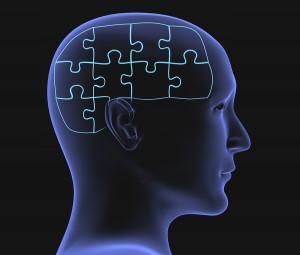 Is it possible that the amount of food you think you ate, can have an effect on how full you feel hours later? Yes, according to research presented at The Obesity Society’s annual scientific meeting. Jeffrey Brunstrom, PhD gave a presentation about portion size perception, and the feeling of fullness (“satiety”).
Is it possible that the amount of food you think you ate, can have an effect on how full you feel hours later? Yes, according to research presented at The Obesity Society’s annual scientific meeting. Jeffrey Brunstrom, PhD gave a presentation about portion size perception, and the feeling of fullness (“satiety”).
Brunstrom spoke about a study where participants were all given the same portion size of a smoothie. However, they were told different information about the portion sizes they received. Despite consuming the same amounts, 2 – 3 hours later the participants who were told they had a larger portion, reported feeling more full than the participants who were told they had a smaller portion. The data suggested their memory was affecting their levels of satiety. To test this idea further, Brunstrom used a specially designed soup bowl that allowed researchers to control differences in how much soup the participants saw vs how much they ate. Some participants saw 500mL of soup, and ate 500mL of soup. The other group saw only a 300mL serving of soup, but ate the same 500mL as the other group (because the soup bowl re-filled as they ate).
Immediately after eating, both soup groups reported the same level of fullness, indicating that the volume of soup consumed was driving that feeling. However, several hours later, the level of fullness reported by the participants was correlated with how much soup they remembered seeing, instead of how much soup they actually ate: those who saw the smaller 300mL portion reported feeling more hungry than those who had seen the larger 500mL portion. Brunstrom explained that the memory of portion size can take over after some time, and affect our hunger.
Can this concept be used to help people eat less? “Yes – perhaps – but it’s complicated” Brunstrom said. The power of the mind is extremely strong, but figuring out how to best help people is difficult. He went on to explain another study he did that involved two versions of a spaghetti dish. One version was a regular, high calorie version; the other was a reduced calorie version. Participants did not know there were two versions, so didn’t have differing expectations of the meal. Immediately after eating, the participants ranked their enjoyment of the food. They ranked the food equally. However, when surveyed later, the participants who ate the lower calorie version remembered their food less favorably. This effect is known as the “missing calorie effect”. Even if we don’t know we are eating fewer calories, and believe we are enjoying a food, our body may figure out the missing energy or calorie value later and alter our memory of how much we liked the particular food.
We spoke to Dr Matthew Brengman, expert bariatric surgeon in Richmond, about these findings. “These are very interesting studies,” Dr. Brengman said, “because they emphasize the intense connection between our gut and brain. We have a better, albeit basic, understanding of how nutritional components of food trigger hunger and satiety. But these studies emphasize the importance of behavior in hunger control.”
One of Brunstrom’s studies that had a relatively easy-to-implement tip was research he did on how distraction affects eating. He found that if you distract a person while they are eating a meal, they’re more likely to eat more at their next meal. This could be related to the distraction interfering with the ability to form a strong memory of eating. So even if we eat a set portion of food while we’re working or watching tv, that distraction could be affecting the amount we eat later in the day. “In medical and surgical weight loss we have always tried to emphasize to our patients the importance of having food and mealtime as a focused and deliberate part of the patient’s life, rather than a irregular and haphazard event. This last study of distracted eating really brings that point home. Unfortunately we fight the reality of today’s busy lifestyle,” Brengman added.
by Emma Squillace






Nutrition & Lifestyle